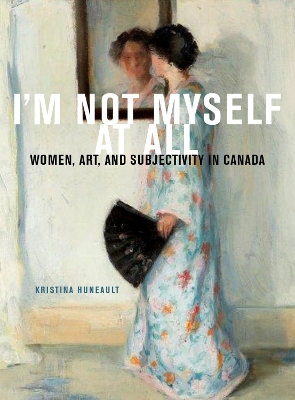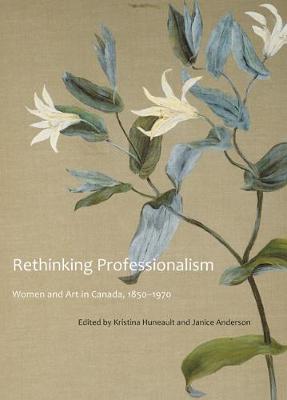McGill-Queen's/Beaverbrook Canadian Foundation Studies in Art History
2 total works
Notions of identity have long structured women’s art. Dynamics of race, class, and gender have shaped the production of artworks and oriented their subsequent reassessments. Arguably, this is especially true of art by women, and of the socially engaged criticism that addresses it. If identity has been a problem in women’s art, however, is more identity the solution? In this study of nineteenth- and early twentieth-century art in Canada, Kristina Huneault offers a meditation on the strictures of identity and an exploration of forces that unsettle and realign the self. Looking closely at individual artists and works, Huneault combines formal analysis with archival research and philosophical inquiry, building nuanced readings of objects that range from the canonical to the largely unknown. Whether in miniature portraits or genre paintings, botanical drawings or baskets, women artists reckoned with constraints that limited understandings of themselves and others. They also forged creative alternatives. At times identity features in women’s artistic work as a failed project; at other times it marks a boundary beyond which they were able to expand, explore, and exult. Bringing together settler and indigenous forms of cultural expression and foregrounding the importance of colonialism within the development of art in Canada, I’m Not Myself at All observes and reactivates historical art by women and prompts readers to consider what a less restrictive conceptualization of selfhood might bring to current patterns of cultural analysis.
The history of women and art in Canada has often been celebrated as a story of progress from amateur to professional practice. Rethinking Professionalism challenges this narrative by questioning the assumptions that underlie the category of artistic professionalism, a construct as influential for artistic practice as it has been for art historical understanding. Through a series of in-depth studies, contributors examine changes to the infrastructure of the art world that resulted from a powerful discourse of professionalization that emerged in the late- nineteenth century. While many women embraced this new model, others fell by the wayside, barred from professional status by virtue of their class, their ethnicity, or the very nature of the artworks they produced. The richly illustrated essays in this collection depict the changing nature of the professional paradigm as it was experienced by women painters, photographers, craftspeople, architects, curators, gallery directors, and art teachers. In so doing, they demonstrate the ongoing power of feminist art history to disrupt patterns of thought that have become naturalized and, accordingly, invisible.
Going beyond the narratives of recovery or exclusion that the category of professionalism has traditionally encouraged, Rethinking Professionalism explores the very consequences of telling the history of women's art in Canada through that lens. Contributors include Annmarie Adams (McGill University), Alena Buis (Queen's University), Sherry Farrell Racette (University of Manitoba), Cynthia Hammond (Concordia University), Kristina Huneault (Concordia University), Loren Lerner (Concordia University), Lianne McTavish (University of Alberta), Kirk Niergarth (Mount Royal University), Mary O'Connor (McMaster University), Sandra Paikowsky (Concordia University), Ruth B. Phillips (Carleton University), Jennifer Salahub (Alberta College of Art & Design), and Anne Whitelaw (Concordia University).
Going beyond the narratives of recovery or exclusion that the category of professionalism has traditionally encouraged, Rethinking Professionalism explores the very consequences of telling the history of women's art in Canada through that lens. Contributors include Annmarie Adams (McGill University), Alena Buis (Queen's University), Sherry Farrell Racette (University of Manitoba), Cynthia Hammond (Concordia University), Kristina Huneault (Concordia University), Loren Lerner (Concordia University), Lianne McTavish (University of Alberta), Kirk Niergarth (Mount Royal University), Mary O'Connor (McMaster University), Sandra Paikowsky (Concordia University), Ruth B. Phillips (Carleton University), Jennifer Salahub (Alberta College of Art & Design), and Anne Whitelaw (Concordia University).

